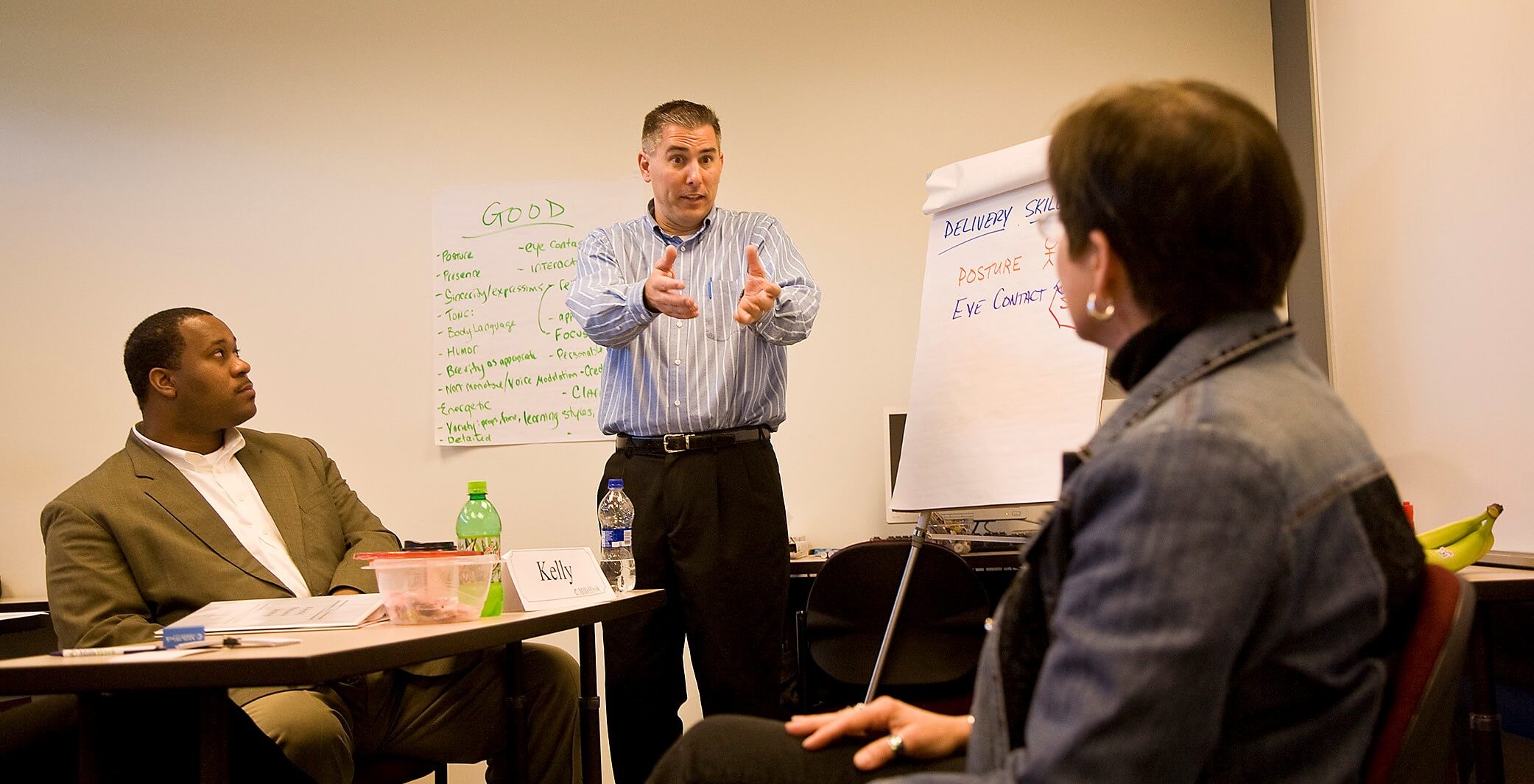Finish this sentence. Practice makes…
I learned from the world of sports that “perfect” is not the right answer. Just because you put in the time practicing does not guarantee that you’ll get good at something. Shooting baskets for hours may make you slightly better, but if you practice the wrong form for every one of those shots, when you advance your level of play, there’s a limit to how good a shooter you can be. You can play the piano every day, but if you never learn proper technique, you should hold off on those reservations to Carnegie Hall just yet. And you can speak all day, every day, and never come close to being an effective communicator.
For years, we’ve taught that practice makes permanent. Practice creates muscle memory.
I was recently sitting with family and the subject came up. “Perfect!” was the immediate answer, which set me off on a soliloquy of the lesson I’ve taught a hundred times. I ended with “most people have practiced speaking for decades, but they’ve done it wrong. That’s why they’re not effective. Practice makes permanent, not perfect.” My lovely bride then asked (side note: her questions are often a little deeper than merely wanting a response), “Well, doesn’t permanent mean that it can’t be changed?!”
And with that one question, a stalwart point of our workshops was shelved. If bad practice creates people that cannot change, then I no longer have a job.
A healthy discussion then ensued. Clearly practice doesn’t make perfect. HOW you practice matters. Clearly practice doesn’t make permanent, any behavior can be changed, with effort. So what, exactly, does practice – or repeated behavior – really do?
Since I’m a huge fan of alliteration, and since perfect and permanent were already leading us down the road, I began pounding the online dictionary with the “per-” prefix. There was perquisite (extra payment). Not exactly. Periodic? Not what I’m looking for. Perlocutionary? GREAT meaning for a speech coach, and a word I feel assured I’ll work into a future newsletter, but not exactly what practice does in all situations. Pernicious (deadly!) – please, no! But I found the perfect (!) result.
Practice Makes Pertinacious
Pertinacious (adjective): extremely or objectionably persistent
(ok, so I could have used persistent, but you’ll remember it better this way!)
The habits of speaking that you’d like to break are persistent. They are hard to change. It feels weird and it’s easier to just stay the way you are. If you practice that same way, it will be even harder to change. The more you practice (wrong), the harder it is to change.
But practice IS the way to mastery. You just need to practice the right things the right way. For speakers, here are three tips to better practice, and thus better results.
Practice, don’t rehearse –
Rehearsal is a dry run, with a purpose to get through the entire show. Most people rehearse their speeches, they don’t practice. Practice is the repeated execution of a specific skill, with the hope that it becomes second nature and can be included in the normal routine whenever needed. Reading through your script is rehearsal; going through your opening line five times, trying to get better each time, is practice.
Practice out loud –
Since most of us are likely creating content on a computer screen, we are tempted to sit and stare at our computer screen as we go through our content and call that practice. But you won’t be delivering your material to the computer (although you might be doing it over a computer through an online tool like Zoom). You’ll be doing it out loud. So practice out loud. You’ll need to find a private place to avoid weird looks from family and co-workers, but that’s doable. I practice in hotel rooms (Zig Ziglar famously practiced two hours a night in his hotel before speaking), in my car (Bluetooth is a wonderful tool), and also at my computer in my home office as I’m writing. Saying it out loud makes me find the key points, places where my emphasis could change, and helps me recognize that my voice makes the meaning. As a side note, I’ve found that speaking out loud also helps me remember content. Although I never require myself to memorize a speech or talk, it does help when I can remember my content without consulting my notes.
Embrace Feedback –
The reason we practice is to get better. Practice at any level without external feedback is subject to the judgement of our own mind. And our own mind is what got us into our habits in the first place. Bluntly, we are terrible evaluators of ourselves. In our driving. In our relationships. In our speaking. Get outside input. It is a gift that is the only way we can gain an accurate assessment of where we are and that gap between where we need or want to be. We all need a coach.
It won’t take long following us to know that we are HUGE proponents of using video to get that feedback. Fall in love with watching yourself critically. It doesn’t substitute for another’s opinion or insight, but it is a necessary piece of the solution.
With that in mind, I have joined the coach advisory board for a new startup called Yoodli. Their tool uses AI analysis to help you improve your public speaking. It uses video from your webcam and can tell you in just a few seconds what your habits are. It does not address content or the human element (it’s a computer, after all), but the tool has a human feedback mechanism as well, which allows you to loop in a speech coach or friend to give asynchronous thoughts. If you don’t know what to talk about, it can prompt you with scenarios and fun impromptu speaking games, interview prep questions, and it will compare your results to well-known celebrities. Try it out here (beta), and sign up for updates on its delivery here. Log in with your Google account to make comments and see the peer review features. I think you’ll really like this tool!
Click here for a sample of the Yoodli platform. I will be making mistakes to show you how it works (link compatable with Google Chrome and Firefox).
If you want to get better – at anything – practice must be a regular and important part of your progress. Don’t assume that doing a run-through is the same as practice. You might feel better, and you might get better. But you might just reinforce your bad habits.
Practice makes pertinacious. But Communication matters! What are you saying?
Communication matters. What are you saying?
Want more speaking tips? Check out our Free Resources page and our YouTube channel.
We can also help you with your communication and speaking skills with our Workshops or Personal Coaching.
This article was published in the March edition of our monthly speaking tips email newsletter, Communication Matters. Have speaking tips like these delivered straight to your inbox every month. Sign up today to receive our newsletter and receive our FREE eBook, “Twelve Tips that will Save You from Making a Bad Presentation.” You can unsubscribe at any time.




